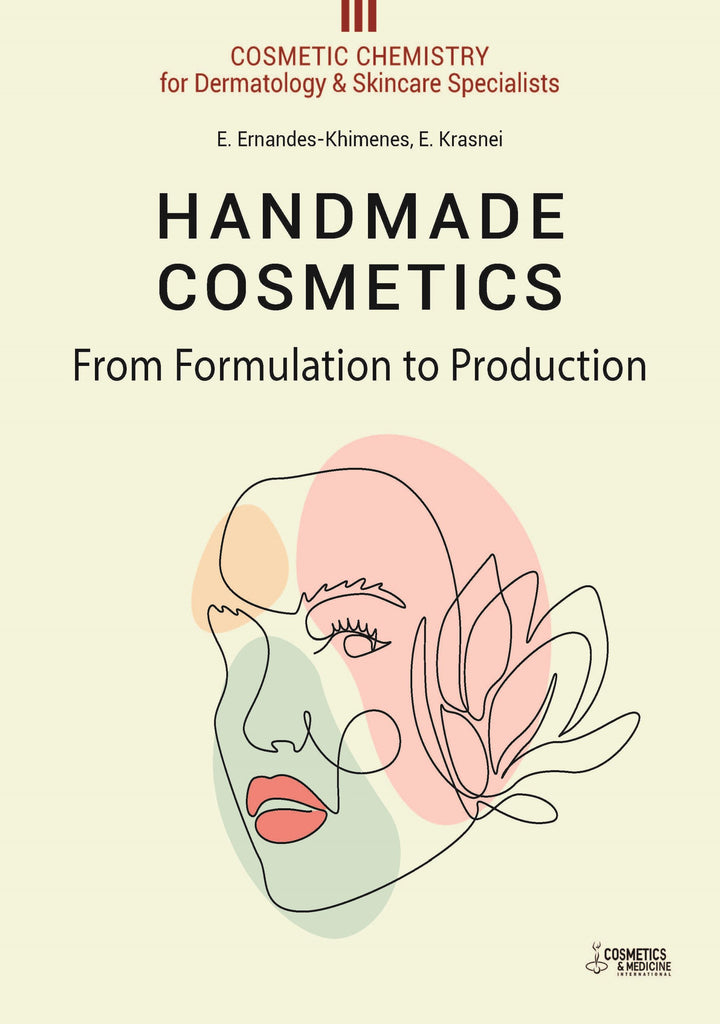HANDMADE COSMETICS. FROM FORMULATION TO PRODUCTION
Book series COSMETIC CHEMISTRY FOR DERMATOLOGY & SKINCARE SPECIALISTS
- Publisher: Cosmetics & Medicine Publishing
- Format: eBook
- Pages: 200
- Language: Russian
- Publication date: March 16, 2023
- Product dimensions (WxHxD), cm: 20.5 x 26.0 x 1.0
- ISBN/ISSN:
Handmade cosmetics are one of the most exciting facets of the cosmetic industry. It has become an encouraging trend and attracts more active, enterprising, and educated people. And there are reasons for this.
First, in contrast to mass production, handmade cosmetics allow you to consider the needs of a particular person’s skin and achieve maximum results. Second, the creator of such cosmetics has an excellent opportunity to rise to new professional heights, offering customers a personalized product and a unique service. Third, the established production of your private cosmetics, albeit small, can quickly become a tangible source of income. But this is possible under one condition: you must approach the business correctly. This book is about that.
The book starts with a brief but necessary excursus on the skin to understand the real possibilities of cosmetic products and help set achievable goals. Setting a purpose related to a particular aesthetic problem and skin condition is the first step in creating a cosmetic product; only after that does the selection of ingredients and formulation begin.
When working on the formulation, not only are biologically active substances responsible for the product’s effectiveness chosen, but it is also necessary to decide how the product will look. The base components are selected depending on the chosen form (cream, solution, paste, powder, etc.). They determine the product’s appearance, consumer characteristics (texture, odor, color, storage conditions, shelf life), and packaging. Here, it is necessary to consider a lot of nuances related to the chemical stability and compatibility of different substances within one formulation. All these issues are discussed in detail in our book.
Production facilities are indispensable for releasing high-quality cosmetics, so the question of mini-laboratory and mini-factory at-home organizing has a special place in our book.
The book is intended primarily for those who, by their profession, deal with cosmetics — skincare specialists, dermatologists, cosmetic chemists, as well as managers, educators, and sales staff. However, even if you are not in the cosmetic business, the book will expand your knowledge in this area and open new horizons. And if you have already embarked on creating your cosmetics, this book will become your reliable guide. It will help to go through this challenging but exciting way competently and effectively.




